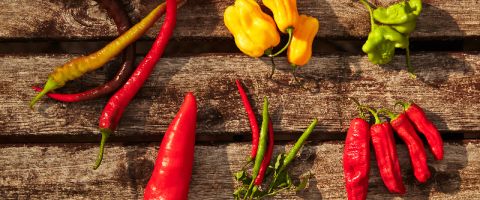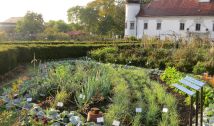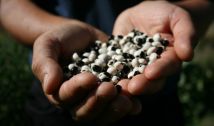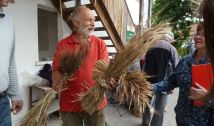English
Our heart beats for biodiversity
Crop diversity is a source of life - just like air or water.
DIVERSITY - WHAT IS THE BENEFIT?
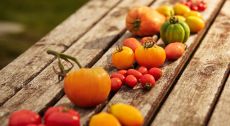
We need more real diversity instead of more of the same!
Over the course of the twentieth century, we have lost about 75 percent of the world’s agricultural diversity. The loss continues; every day, plant varieties disappear forever. Plant lovers are not the only ones who should worry about this: plant diversity is fundamental to the food source of all people on Earth.
Why? Diversity is a treasure chamber. It ensures that our agriculture is able to adapt to changing environmental conditions and challenges, such as climate change, diseases and pests. It gives plants the ability to flourish under extreme conditions and in remote areas – in short, anywhere where humans want to live and eat.
From our vantage point, it is not possible to speculate about what will one day be of value to us. Yet it is clear that it would be very careless and dangerous for us to let these treasures disappear forever. We need to preserve diversity to ensure prosperity and food sources in the future.
Also, diversity is pure joy. It ensures the diversity of tastes - tastes you might remember from childhood. Diversity ensures quality products and enlarges your range of choice.
The ten most important arguments for agricultural biodiversity
1) Crop diversity is the basis for our food security. From today's perspective, we can only estimate which “genetic resources” will be "valuable" or vital in the future. Therefore, it is careless to discard or destroy the diversity of old and rare local crops.
2) Diversity strengthens nature’s defensive forces. It helps in the mitigation of disturbances in agro-ecosystems. The more diversity, the more stability. This yield security also serves people.
3) Diversity means pleasure and quality of life! Anyone who has ever bitten into a juicy and aromatic rare variety of tomato from a farmer’s market, has savoured the flavour of an obscure variety of apple, or enjoyed the unique taste of home-grown vegetables knows the difference, and therefore knows what is at stake.
4) Crop-diversity is part of our culture. The history of crops is a common story of mankind and plants. The plants which feed us also form us. Typical dishes, customs, festivals, traditions and local knowledge will be lost forever if the plants disappear.
5) Diversity helps save money. According to calculations by the United Nations, by 2050 the loss of species will cost Europeans more than $1.1 trillion Euros per year. The loss of species will reduce the global Gross Domestic Product (GDP) by three percent annually.
6) Diversity supports adaptation to extreme weather conditions. Under today’s pervasive and perennial threat of climate change, locally adapted plants are an important resource of different biological characteristics which could help to sustain crop yields in the future.
7) Diversity contributes to food sovereignty. Today, ten agrochemical corporations dominate the global seed market, creating a substantial dependence among farmers. Countries that promote regional crop varieties and allow seed exchange with their policies will in turn foster greater independence from these corporations.
8) Diversity reduces the necessity of pesticides. Monocultures and toxic pesticides go hand in hand. In a sustainable, diverse agriculture with robust plant varieties, pesticides become dispensable.
9) Diversity helps people with allergies. Among the thousands of (still) existing crop varieties, alternatives can be found for people who suffer from allergies. By the way: today, 90 percent of the global food harvest comes from approximately 100 different species, even though it is possible to utilise more than 4,800.
10) Preserving diversity is also a moral obligation. The diversity of life is a value in itself and is thus worthy of protection. We cannot assess the impact of our interventions on nature’s complex relationship structure. Therefore, it is our duty to take precautionary measures.

Seed exchange is the answer
The reform of the EU seed law might prohibit the free exchange of seeds, rootstocks and other propagating material. ARCHE NOAH finds this unacceptable. If farmers must purchase stocks of seed each year, the dependency of farmers on the agricultural industry will become entrenched.
Seed exchange is a millennia-old tradition of farmers and gardeners. Growing plants, saving seeds and exchanging them was common practice prior to the industrialisation of our food system. In many parts of the world, this practice is still a daily reality and leads to a wide variety of different crops, and a strong local adaptation of plants used in agriculture.
If you grow your own plants and save your own seeds and pass them on to your family and friends, you will contribute to the creation and preservation of diversity (and valuable knowledge).
Rare plants do not only embellish your balcony or garden. If you grow and propagate them, you help to secure food sources for future generations. The future needs diversity.
About ARCHE NOAH
About foundation and objectives, showgarden... etc. Read more 
Policy
ARCHE NOAH´s activities for seed policy. Read more 
Projects
Read about our international projects. Read more 


